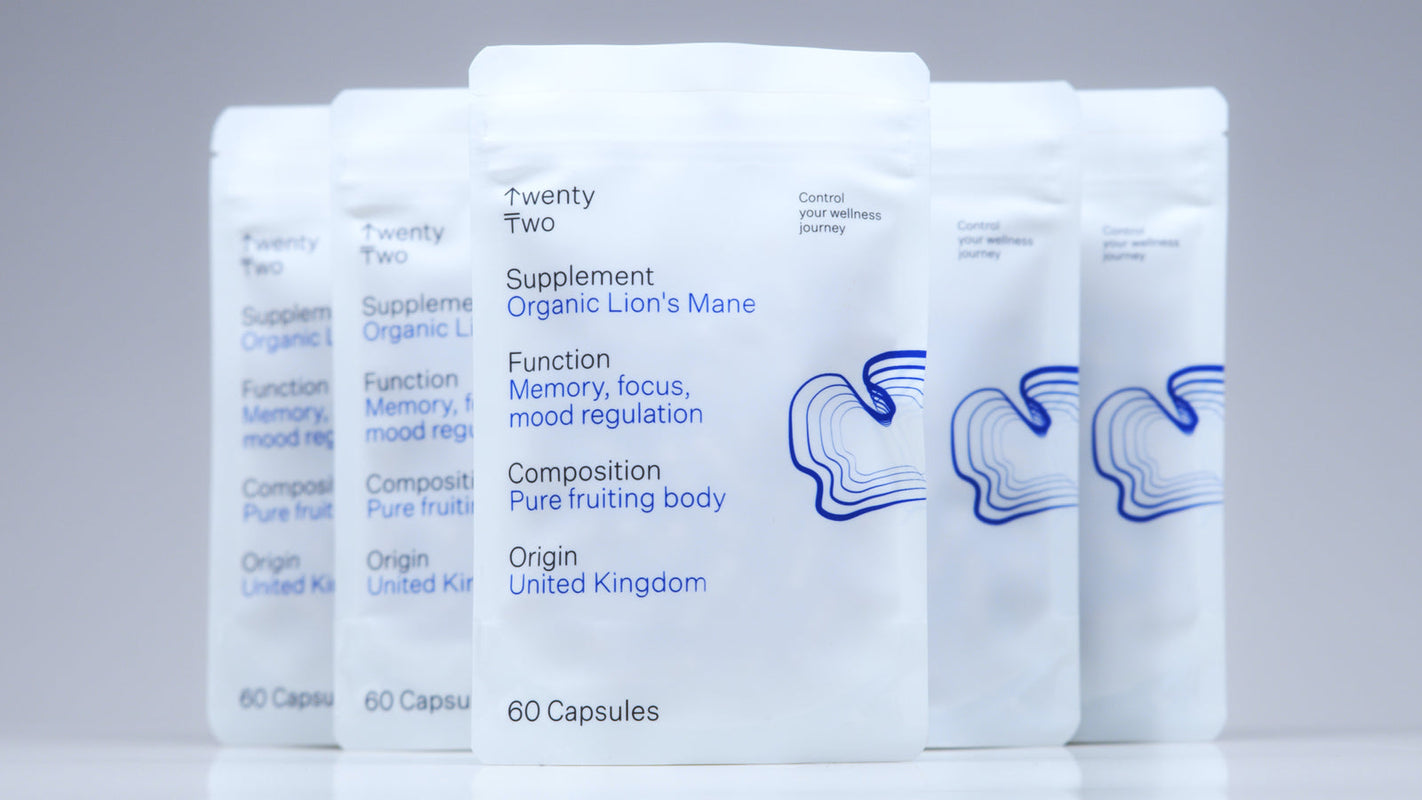Mushroom Powder vs. Extract: Understanding the Differences and Making the Right Choice
The enigmatic and mysterious world of mushrooms is now a hot topic in the world of health and science. From their well-documented and ancient medicinal uses to their extensive use in fine food and everyday menus, mushrooms undeniably occupy a crucial space in the health and wellness landscape.
In this blog, we aim to help you understand the specifics of mushroom powders and extracts and their differences, including how the extraction process affects the supplement's efficacy.
When it comes to Lion's Mane mushroom powder and extract, we hope to guide you towards the choice that best suits your needs, whether for nutritional purposes or as part of an adaptogenic lifestyle.
[ad-banner-3]
Medicinal Mushrooms: A Glimpse into a Healing Realm
Medicinal mushrooms are brimming with a multitude of therapeutic applications - over 130, according to a report published in Frontiers in Pharmacology in July 2022.
Each type offers a unique bouquet of benefits:
Agaricus Blazei: A cardiovascular ally and antioxidant powerhouse.
Lion’s Mane: A cognitive enhancer and mood balancer.
Chaga: A guardian of skin health and oxidative stress.
Reishi: An immune booster and sleep quality enhancer.
Cordyceps: An energiser and post-exercise recovery facilitator.
Turkey Tail: A digestive system supporter and prebiotic.
Shiitake: A protector of immunity and cardiovascular health.
Despite their potent benefits, fresh medicinal mushrooms can be challenging to incorporate into your daily diet due to their scarcity, cost and sometimes peculiar flavours. So, the most practical way to consume good quantities of mushroom medicine is through mushroom powders and extracts.
Unveiling the Powder: The Wholesome Mushroom
Mushroom powder is crafted by dehydrating and grinding mushrooms, encapsulating their nutritional profile, including valuable proteins, complex carbohydrates, B vitamins, minerals (like selenium, copper, iron, and potassium), antioxidants, and a slew of bioactive compounds.
Powder Pros:
Powder Cons:
Mushroom powders can glide easily into your smoothies, soups, or baking, making them versatile and fun to experiment with. But while they’re nutrient-rich, the potency of their medicinal compounds, like beta-glucans, might not hit as hard as in extracts.
Extracting the Essence: A Closer Look at Mushroom Extracts
Mushroom extracts prioritise the bioavailability of your mushrooms’ potent compounds, such as beta-glucans and triterpenes. These are otherwise locked within the mushrooms' robust cell walls. Through extraction processes, including hot water, alcohol, or a combination, these invaluable compounds are made readily available for bodily absorption. So when you take the mushroom extract, all the goodness is exposed, and your body can take it in easily.
Pros:
Benefits of the different types of extraction methods:
Beta-Glucans: The Underpinning Powerhouse
Fungal beta-glucans are the showpiece of the mushroom’s potent profile, and they’re instrumental in stabilising blood sugar levels, regulating cholesterol, helping digestion, lowering blood pressure and bolstering immunity to help you fight viruses, infections and even tumours.
Beta-glucans in extracts can be up to 15 times more concentrated compared to powders due to the extraction process, making them more readily absorbed during digestion. This means you get more of the health benefits of taking a mushroom supplement when you take it in the form of an extract.
Weighing the Choices
If you’re looking to gain specific therapeutic effects and health benefits like maximising beta-glucan intake, you’ll find that mushroom extracts are the winning choice due to their concentrated compounds and enhanced bioavailability. Extracts also flaunt higher levels of antioxidants, fortifying the body against oxidative stress and ageing.
On the other hand, mushroom powders preserve a wide array of nutrients and are convenient if you aim to enhance your nutritional intake, especially within a plant-based diet.
[ad-banner-4]
Lion’s Mane: Powder vs Extract
Ultimately, the choice between Lion's Mane mushroom powder and extract depends on your individual health goals and dietary preferences.
Always source your supplements from trustworthy entities, ensuring safety, potency, and efficacy in your mushroom experience.
Here at Twenty Two, we only use mushroom extract for our Lion’s Mane supplements because we believe it’s the superior choice. If you’re interested in a deeper dive into our mushroom extraction method, then check out our blog: Mushroom Power: Why We Extract?


